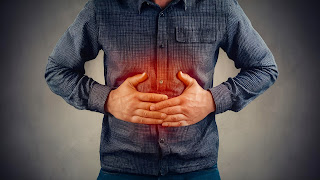Understanding Gastritis
Gastritis is a broad term encompassing a group of conditions characterized by inflammation of the stomach's protective lining. Acute gastritis is marked by sudden and severe inflammation, while chronic gastritis involves long-term inflammation that can persist for years if untreated.
Symptoms of Gastritis
Most people with gastritis experience few or no symptoms. When symptoms do occur, they often include:
Nausea
Indigestion
A feeling of fullness in the upper abdomen after eating
Vomiting
Causes of Gastritis
Gastritis typically arises when the stomach lining becomes weakened, allowing digestive juices to cause damage and inflammation. Factors that can lead to a weakened stomach lining and increase the risk of gastritis include:
Bacterial Infections: The most common is an infection by H. pylori, a bacterium that affects the stomach lining.
Age: The stomach lining naturally thins with age.
Substance Abuse: Use of tobacco and extreme alcohol consumption.
Medication: Regular use of NSAIDs like ibuprofen and aspirin.
Diagnosis of Gastritis
To diagnose gastritis, a doctor will perform a physical exam, inquire about symptoms, and review the patient's family medical history. Additional tests may include:
Upper GI Endoscopy: This procedure involves inserting a flexible tube with a camera into the stomach to check for inflammation. A biopsy of the stomach lining may be taken.
Blood Test: Used to identify other potential causes of symptoms.
Upper GI Series: X-rays of the digestive tract taken after the patient drinks a barium solution to highlight problem areas.
Urea Breath Test: This test checks for an H. pylori infection by having the patient swallow a capsule containing urea and then measuring the carbon dioxide in their breath.
Treatment of Gastritis
Treatment for gastritis depends on the underlying cause. For gastritis related to H. pylori, antibiotics are used to eradicate the bacterium. Other medications include:
Proton Pump Inhibitors (PPIs): These medications block the cells that produce stomach acid.
Acid-Reducing Medications: These drugs reduce the amount of acid in the digestive tract, alleviating discomfort and promoting healing of the stomach lining.
Probiotics: These can aid in the recovery from gastric ulcers and the restoration of healthy digestive flora, though they do not affect acid secretion.
For expert care and treatment of gastritis, consult Dr. Rahul Raghavapuram at IRA Gastro & Surgical Clinic, Meerpet, Hyderabad. Dr. Raghavapuram holds an MBBS, DNB in General Surgery, DNB in Surgical Gastroenterology, and credentials including FACRSI, FMAS, and FIAGES.




Comments
Post a Comment